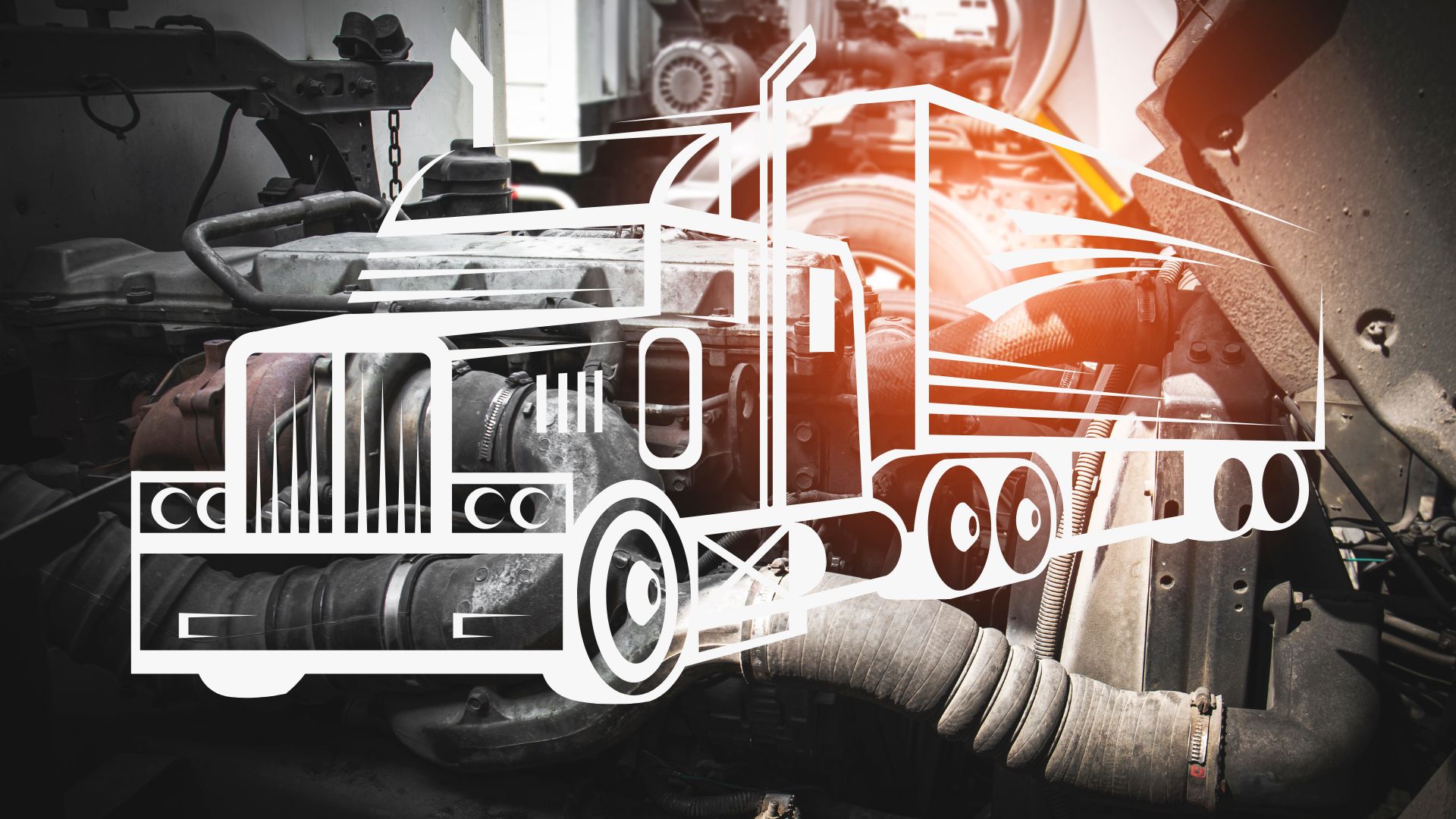When it comes to trucks, whether they are used for long-haul freight, construction, or agriculture, the engine is the heart of the vehicle. Truck engine parts are fundamental to ensuring these heavy-duty vehicles operate efficiently, reliably, and safely. For those who drive trucks for a living, manage fleets, or simply have a passion for heavy machinery, understanding the different components of a truck engine, their uses, and their importance is key to maintaining performance and longevity.
This article will explore the various parts that make up a truck engine, their specific functions, and the reasons why they are vital for the proper operation of these powerful machines.
The Essential Components of a Truck Engine
A truck engine is a complex system made up of various parts that work together to convert fuel into the mechanical energy required to move a vehicle. Let’s break down some of the most important truck engine parts:
- Cylinder Block: Often referred to as the engine block, this is the core structure of the engine. It houses several crucial components, including the cylinders, which are responsible for the combustion process. The cylinder block provides a foundation for other parts and is typically made from cast iron or aluminum alloy for durability and heat resistance. The quality of the cylinder block directly impacts the overall performance and lifespan of the engine.
- Cylinder Head: The cylinder head sits on top of the cylinder block and plays a critical role in sealing the combustion chamber. It contains key parts such as the intake and exhaust valves, fuel injectors, and spark plugs (in gasoline engines) or glow plugs (in diesel engines). The cylinder head also helps with air and fuel flow, cooling, and exhaust processes, making it essential for efficient combustion and power generation.
- Pistons: Pistons are cylindrical components that move up and down inside the engine’s cylinders. They play a crucial role in converting the energy produced during fuel combustion into mechanical force that drives the truck’s wheels. The pistons are connected to the crankshaft via connecting rods and help maintain compression within the cylinders. A well-functioning piston ensures smooth and efficient power delivery, contributing to the overall performance of the engine.
- Crankshaft: The crankshaft is responsible for transforming the linear motion of the pistons into rotational motion that turns the truck’s wheels. It is located within the engine block and rotates at high speeds, which means it must be precisely balanced to prevent vibrations and ensure smooth operation. The durability and balance of the crankshaft are crucial for minimizing wear and tear on the engine.
- Camshaft: The camshaft controls the opening and closing of the engine’s intake and exhaust valves. It is typically driven by the crankshaft and is essential for ensuring that the valves open and close at the right times during the combustion process. Proper timing of the camshaft is vital for optimizing engine efficiency, power output, and fuel economy.
- Fuel Injectors: Fuel injectors are responsible for delivering the correct amount of fuel into the combustion chamber at precisely the right time. They ensure that the fuel is atomized properly, which allows for more efficient combustion. In modern diesel engines, fuel injectors play a critical role in meeting emissions standards by precisely controlling the amount and timing of fuel delivery.
- Turbocharger: A turbocharger increases the engine’s power output by forcing more air into the combustion chamber, allowing for a greater amount of fuel to be burned. It is a vital component for heavy-duty trucks that need extra power for towing, hauling, and climbing steep grades. Turbochargers are also beneficial for improving fuel efficiency, as they enable smaller engines to produce the power of larger ones without a proportional increase in fuel consumption.
- Cooling System: The cooling system, which includes parts like the radiator, water pump, and thermostat, prevents the engine from overheating by circulating coolant around the engine block and other components. This system dissipates the heat generated during combustion and helps maintain an optimal operating temperature. An efficient cooling system is essential to avoid engine damage and maintain consistent performance.
- Exhaust System: The exhaust system, including the exhaust manifold, catalytic converter, and muffler, expels the gases produced during combustion out of the engine and away from the vehicle. It plays a key role in reducing emissions, noise, and improving engine performance. A properly functioning exhaust system is vital for meeting environmental regulations and ensuring smooth engine operation.
- Oil Pump: The oil pump circulates engine oil to lubricate moving parts, reducing friction and wear. It also helps with cooling by dissipating heat generated by friction. A reliable oil pump is crucial for maintaining engine health, reducing the risk of mechanical failure, and extending the life of engine components.
Importance of Truck Engine Parts
Understanding the importance of these parts is essential for several reasons:
- Ensuring Reliability and Longevity: Trucks are often required to operate under extreme conditions, carrying heavy loads over long distances. Regular maintenance and a solid understanding of the parts that make up a truck engine help in detecting issues early, preventing major breakdowns, and extending the vehicle’s life. For fleet managers, this translates to reduced downtime, lower repair costs, and improved overall efficiency.
- Maximizing Fuel Efficiency: Properly functioning engine parts are critical for achieving optimal fuel efficiency. For example, well-maintained fuel injectors and turbochargers ensure that fuel is burned efficiently, reducing wastage and lowering fuel costs. In an era where fuel prices fluctuate significantly, maximizing fuel efficiency can lead to substantial savings over time.
- Meeting Emission Standards: Modern trucks must comply with stringent emissions standards to reduce their environmental impact. Components like fuel injectors, turbochargers, and exhaust systems play a crucial role in minimizing harmful emissions. Understanding these parts allows for better compliance with regulations, helping avoid penalties and contributing to a cleaner environment.
- Enhancing Performance and Safety: Each component of a truck engine contributes to the vehicle’s overall performance. For instance, a well-functioning cooling system prevents the engine from overheating, while a properly maintained crankshaft and camshaft ensure smooth operation. These parts not only optimize performance but also enhance safety, reducing the risk of accidents caused by mechanical failure.
Why Understanding Truck Engine Parts Matters
- Preventive Maintenance: Knowledge of truck engine parts enables proactive maintenance, which is key to preventing costly breakdowns. Regular inspections, timely replacement of worn-out parts, and understanding the signs of potential failures can save both time and money.
- Troubleshooting and Repairs: A basic understanding of engine components allows truck owners and operators to troubleshoot common problems effectively. Whether it’s identifying unusual noises, drops in performance, or changes in fuel consumption, knowing the function of each part can help pinpoint the issue and facilitate
 quicker repairs.
quicker repairs. - Informed Decisions on Upgrades and Modifications: For those looking to modify or upgrade their trucks, understanding the role and compatibility of different engine parts is essential. This knowledge helps in choosing the right upgrades that enhance performance without compromising reliability or safety.
Conclusion: The Heartbeat of Heavy-Duty Trucks
Truck engine parts are the unsung heroes of heavy-duty vehicles. Each component plays a crucial role in ensuring reliability, efficiency, and performance. Understanding these parts not only helps in maintaining the truck but also empowers drivers, fleet managers, and truck enthusiasts to make informed decisions that can improve the lifespan and performance of their vehicles.
By appreciating the importance and functions of various truck engine parts, one can maintain a vehicle’s heart in peak condition, ensuring it continues to perform reliably and efficiently for years to come. Whether you’re driving across the country or managing a fleet, a well-maintained engine is key to keeping your trucks—and your business—running smoothly.

